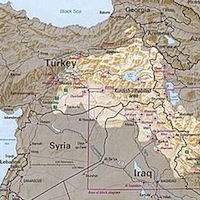American Conservatives these days spend a lot of time insisting in the media that policy-induced economic “uncertainty” — i.e. being uncertain as to whether Congress plans to raise or lower taxes in the long run, which is inherently unknowable* but is used to argue for “permanent” cuts — but the solution to this “uncertainty” from the corporate perspective has always been obvious.
Companies can plan for scenarios with higher fees & taxes and go forward accordingly. If Congress does raise the taxes, then they’re already prepared. If Congress doesn’t raise the taxes after all, then there’s no real harm done to the companies (and they might even find savings while hunting for ways to cut costs to keep profits up).
We are seeing this in action now according to a New York Times article about how several dozen major U.S. corporations are preparing for scenarios where Congress imposes some kind of industry-scale carbon pricing or tax system. Although not currently being seriously considered in the immediate future, given the makeup of Congress at this particular moment, this pricing would eventually likely be put into place to discourage high carbon footprints on a wide scale and probably to pay for some of the damage caused by unmitigated carbon outputs in the past.
More than two dozen of the nation’s biggest corporations, including the five major oil companies, are planning their future growth on the expectation that the government will force them to pay a price for carbon pollution as a way to control global warming.
[…]
A new report by the environmental data company CDP has found that at least 29 companies, some with close ties to Republicans, including ExxonMobil, Walmart and American Electric Power, are incorporating a price on carbon into their long-term financial plans.
Without carbon pricing, dirty fuel and power sources like oil, coal, and natural gas are essentially given a big cost break compared to cleaner renewables by forcing everyone else to pay for their environmental damage (and health consequences) — a practice known as “externalizing” the cost. Carbon pricing aims to end the harmful externalities and force dirty fuel sources to compete fairly against cleaner competitors. It also forces companies to find ways of becoming more energy efficient to save money and reduce their tax burden.
So rather than dithering around being “uncertain” as to when or how exactly Congress will get its act together and establish carbon pricing schemes, major U.S. firms are solving the problem by preparing for the more expensive scenarios now, so they aren’t taken by surprise later. Poof! No more policy-driven uncertainty harms! And that’s why it’s never a valid argument that policy decisions should be undertaken solely to reduce uncertainty in the markets and business world.
Well, that and the simple reality that uncertainty is a basic fact of capitalism, so that’s understood to be part of the rules and risk of going into business.
*It’s “inherently unknowable” whether Congress will do anything “in the long run” because the Constitution prohibits any one cycle of Congress from passing a law that cannot be undone at any time by a future Congress. Thus it is impossible to pass a “permanent” tax cut that is truly permanent. So such measures, while enthusiastically received by their advocates, are of limited real benefit for ending alleged “uncertainty.”



 Sometimes the role of government isn’t about the really big things. Sometimes, it’s just about the little things that affect everything else.
Sometimes the role of government isn’t about the really big things. Sometimes, it’s just about the little things that affect everything else. 


